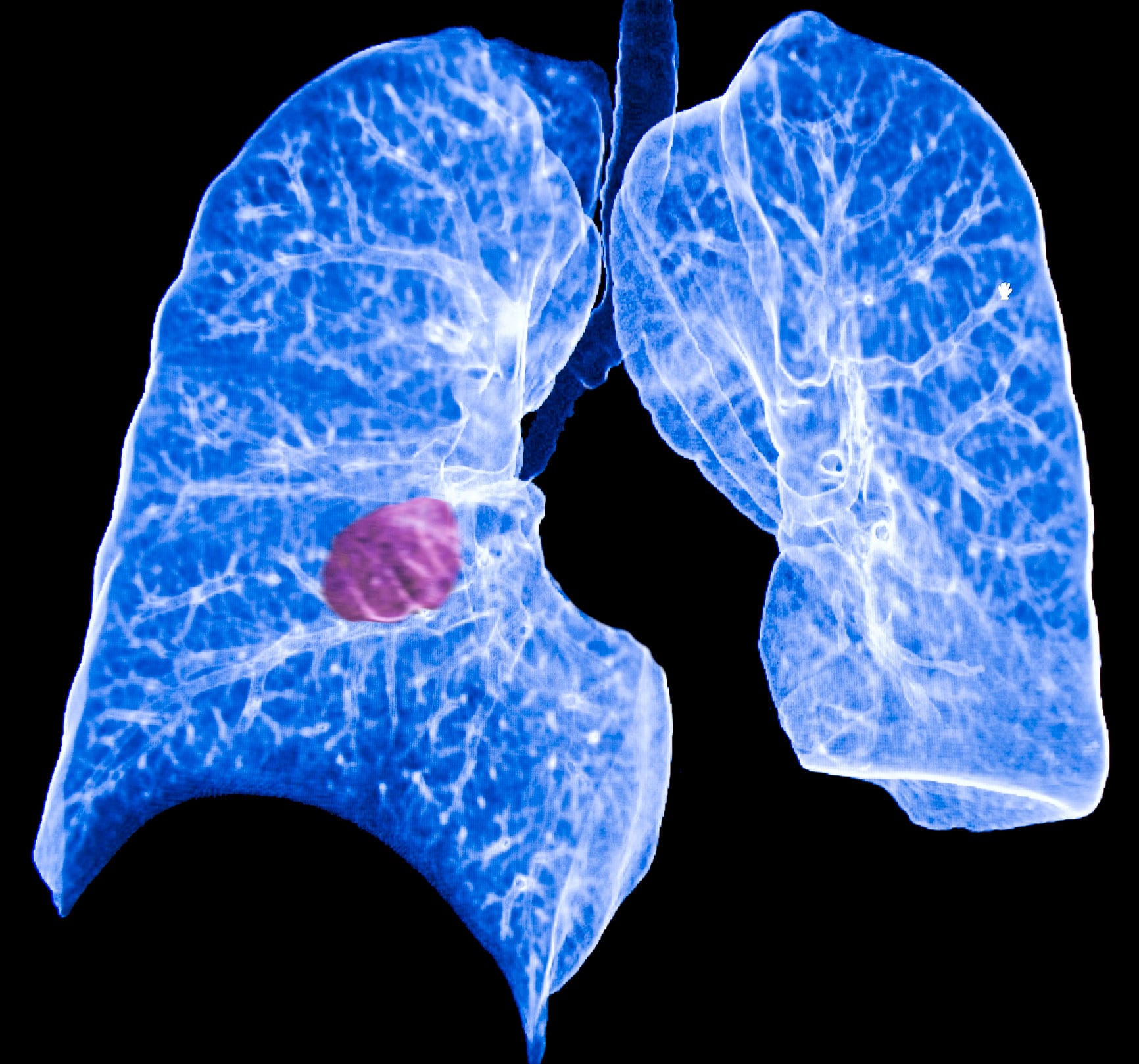<< Back
Lung Cancer Study Leads to New Screening Program

December 21, 2018
Need to know more about lung cancer? Click here to download your free guide.
Following national research data demonstrating substantial improvements in lung cancer mortality, Hartford HealthCare researchers completed their own study exploring the feasibility of lung cancer screening in Connecticut.
In a landmark study sponsored by the National Cancer Institute, researchers with the National Lung Screening Trial screened more than 53,000 current or former heavy smokers and concluded that participants undergoing low-dose helical computed tomography (CT) scans were 15 to 20 percent less likely to die from lung cancer than those being screened by standard chest X-rays. A CT scan provides an image of the entire chest, allowing doctors to identify nodules that might be a sign of cancer.
A team from the Hartford HealthCare Cancer Institute, led by principal investigator Dr. Andrew Salner, used the national findings as the foundation for its Lung Cancer Screening Study. The team – which included Drs. Thomas Farquhar and John Volpe from Hartford Hospital, Dr. Eric Gorny from The Hospital of Central Connecticut, Dr. James Carroll from MidState Medical Center and Dr. Robert Bundy from Windham Hospital – visited Lahey Clinic, an early adopter and research center for lung cancer screening. The goal was to draw on best practices and create a screening study that could be offered to eligible patients at all Hartford HealthCare hospitals.
Need to know more about lung cancer? Click here to download your free guide.
From 2014 to 2016, almost 1,000 people were enrolled in the Lung Cancer Screening Study and underwent annual CT screenings. Active smokers were also counseled for smoking cessation. Of the study participants:
- 6 percent had suspicious findings.
- 124 were found to have unrelated abnormalities, most of which were benign, of other tissues such as the thyroid, breast, aorta, heart, mediastinum, kidney, rib and chest wall or liver.
- 16 had a new primary lung malignancy; 75 percent of these had stage 1 disease.
“An essential philosophy of cancer investigation is to recognize that, in order to learn something, we must ask the right question,” said Dr. Salner, who is also medical director of the Cancer Institute at Hartford Hospital. “In order to answer it, we must design the right research strategy.
“Our research project not only allowed us to gain needed experience with this new modality, but also helped us implement a new program under the rigor of a research project, with a primary care referral orientation and the ability to reach all the communities we serve.”
As a result, primary care physicians in the community can refer patients to the Cancer Institute Lung Cancer Screening Program at the closest Hartford HealthCare acute care hospital. Routinely covered by most insurance plans, the screening takes about 10 minutes and is painless.
“Most importantly, we know that this can save lives,” Dr. Salner said.
Need to know more about lung cancer? Click here to download your free guide.